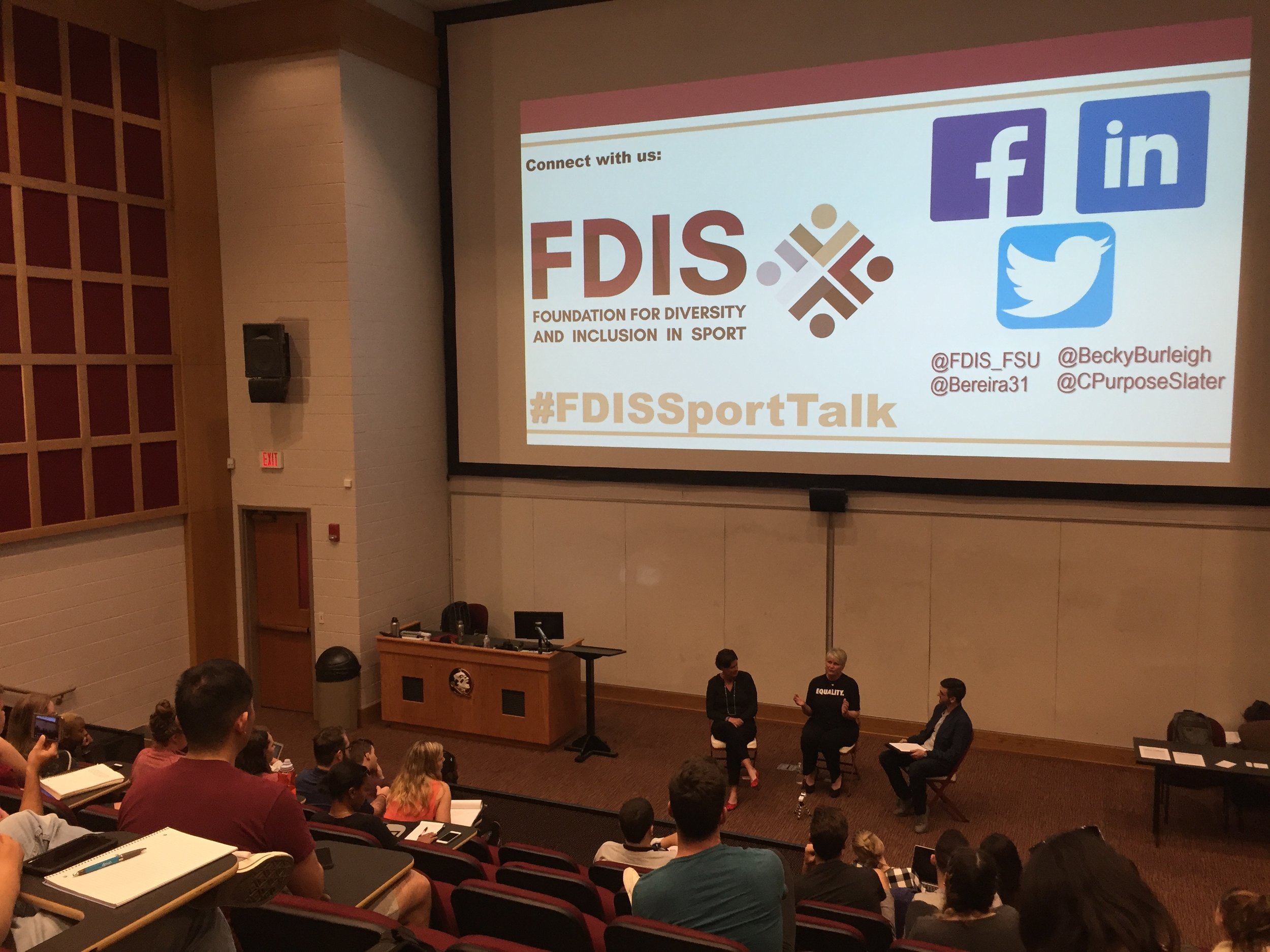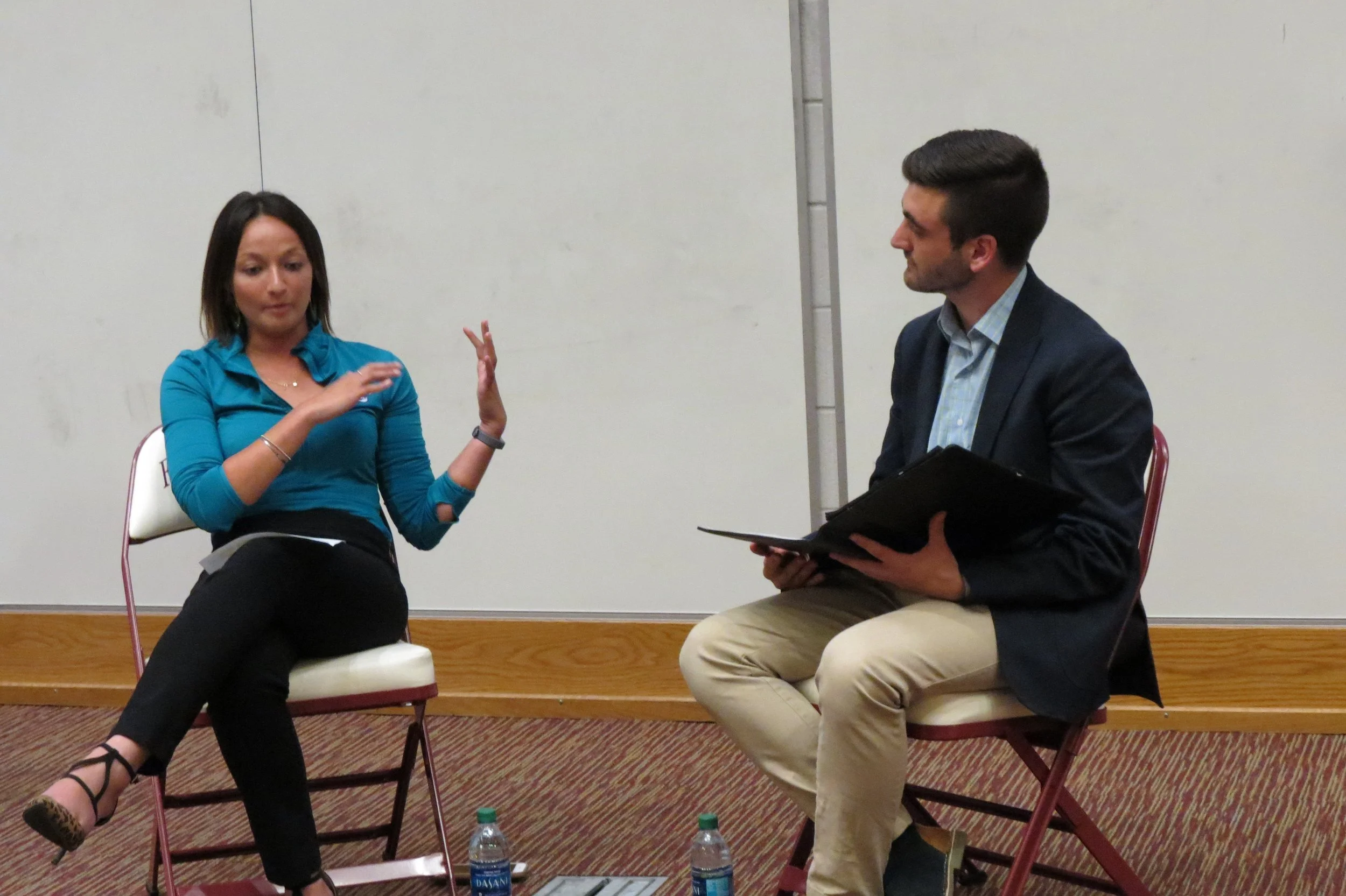Preparing Consciously and Socially Aware Students: The Benefit of a Diversity in Sport Club
by Ben Pereira, Florida State University, MS, Sport Management, ‘18, University of Massachusetts Amherst, BS Sport Management, ‘17
The industry of sport lacks diversity, and that’s not a radical claim. The executive offices and top positions in athletic departments are overwhelmingly likely to be run by males, typically white. For example, in NCAA Division I programs, only 12% of Athletic Directors are female, and it is not due to a lack of qualified applicants. For persons of color in sport, they are often type-casted into certain roles, mainly with athlete management or recruitment. In the NCAA, 87.5% of athletic directors are white. Shockingly, this year, Florida State University became the only institution with a black director of athletics, black head men’s basketball coach, and black head football coach.
I’ve spoken to many of my peers about the discrimination they experience in and outside the classroom. Female students have told me they choose not to speak up in class due to fears of not being taken seriously. LGBT students comment on the ignorant statements made by their peers when sexuality in sport comes up in discussion. Students of color complained of feeling isolated and tokenized as the sole or one of a few students of color in a field still dominated by those of Caucasian descent. Sport management programs serve as the pipeline to the industry, and the culture change needs to start within our own institutions.
Issues related to sexism, racism, homophobia, or any other discriminatory behavior need to be addressed before students start their careers in this industry. We are doing a disservice to our minority students if we allow them to graduate with ignorance towards the discrimination they’re likely to encounter and with no awareness of their legal rights and how to combat it. For our students who are not minorities, it is just important for them to be apart of the conversation because they hold a responsibility to change the industry for the better as well. If we allow for areas where students can have open and honest discussions on the issue, where common empathy can be shared, then we’d be graduating a cohort of consciously and socially aware students ready to change the industry for the better.
This past year, I started the Foundation for Diversity and Inclusion in Sport (FDIS) at Florida State University. The organization is based on a club I served as Vice President of at the University of Massachusetts Amherst, the Association of Diversity in Sport. A core goal of FDIS is to hold events related to diversity and inclusion in sport. The mission of FDIS is to create a space where a group of students who see both the ethical and fiscal responsibility a diverse organization holds, are impassioned to enact change. A place where students can come, feel welcome, to aspire and connect with peers, as well as hear from distinguished sport professionals, on how to succeed in the industry regardless of your race, gender, sexual orientation, etc.
During the Spring of 2018, my team of fellow students and I were able to recruit distinguished sport professionals, who come from diverse backgrounds, to talk about their career trajectory and some of the obstacles they’ve encountered throughout their careers based on their minority status. Some of our speakers included: the University of Virginia’s Athletic Director, and first African American Female AD of a Power 5 school, Dr. Carla Williams; and the Jacksonville Jaguars’ Sr. VP and Chief Legal Officer, Megha Parekh. We were able to recruit top caliber speakers, only paying for travel expenses, because our speakers understood the importance of the conversations we were having.
FDIS has only existed for one semester, but our work has been profound. Our organization received a $1,000 grant from the President of the university, press coverage from our local ABC News and NPR affiliates, and a write-up from OutSports. Our events were attended by students from all walks of life, faculty (both sport management and non-sport management), local sport professionals, and members of Florida State’s athletic department. Our events have featured speakers talking about their sexuality in a public presence for the first time, talking about instances of sexism that brought them to tears, and racial profiling in the application process.
These conversations are not easy to have. But it is imperative for our growth as an industry to have them now, before our students enter the field.
If you’re a sport educator, a club like FDIS might be a worthwhile addition to your program. Consider how you’re talking about issues related to racism, sexism, and homophobia in sport. Have these conversations with your students in the classroom, consider adding a “diversity in sport” course into your curriculum. Sport management programs serve as the pipeline to the industry. Let’s make sure our students are aware of the issues their peers will face, and aware of the fiscal and ethical benefits of a diverse workplace so they can ready to be the change the industry needs.
If you’re interested in chartering an organization like FDIS on your campus, email FDIS.FSU@gmail.com for tips on how to get started.


